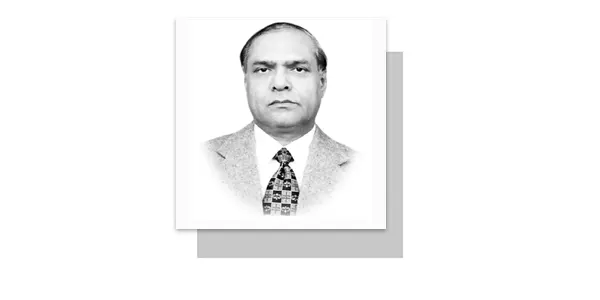ACCORDING to Helen Keller, a renowned humanitarian and disability rights advocate, “Optimism is the faith that leads to achievement. Nothing can be done without hope and confidence.” Hope is a powerful force that gives life meaning, shaping aspirations and actions. It fuels the desire to live, work and build a future, making life fulfilling. Without it, motivation fades, leading to stagnation and despair.
Hope is rooted in the belief that outcomes will be positive, while despair breeds negativity and fear of failure. When hope is lost, people may struggle with self-worth and purpose. Despair can be debilitating, driving individuals toward self-destructive behaviours like self-harm and even suicide. Those trapped in despair find little joy or passion, losing their sense of purpose. As the world thrives on hope, it remains the key force that keeps people striving for a better future, instilling resilience in the face of challenges.
Rollo May explained: “To will to be himself is man’s true vocation…blockages in self-awareness occur because the individual is unable to move through accumulations of anxiety at various points in his growth. Kierkegaard makes it clear that selfhood depends upon the individual’s capacity to confront anxiety and move ahead despite it.” Some people make great strides in the direction of full selfhood. These are individuals of great character and a radiant personality. Most people, however, become stunted in their development and instead of progressing toward the ideal of the “self which one truly is” they regress away from it. Bad influences, bad luck, or just plain laziness and fear are the most common culprits of this failure. Of those who are stunted in their development, some are conscious of their predicament and so aware of their despair, which, according to Kierkegaard, is a prognostically positive sign.
For the more we feel our despair, the more we are motivated to search for ways to overcome it. As philosopher Michael Watts writes, “…it would be accurate to say that despair is the most precious sickness known to man and so there is no reason to despair… if you are suffering from ‘existential despair,’ since this is potentially your ‘ticket’ to freedom.” However, not all whose way of life inhibits the cultivation of a true self are aware of the pit of despair into which they are descending. Some individuals, for whom full consciousness of their situation would flood them with despair, actually believe the life path they are on is right and proper and will lead to fulfilment. According to Kierkegaard, these unfortunate souls are like the consumptive or the person afflicted with an undetected degenerative dis-ease. As he wrote, “…the unconscious despairer is in the same situation as the consumptive; he feels best, considers himself to be healthiest, and can appear to others to be in the pink of condition just when the illness is at its most critical stage.”
Two forces are pushing many these days to this critical state: the corrupted state of a modern conformist lifestyle and the human proclivity toward self-deception. Conformity is neither good nor bad, rather its value is dependent on the way of life it promotes. If it promotes the healthy functioning of body and mind, conformity is good, if it stunts an individual’s development then conformity is bad. In the modern world, conformity is more likely to cause us to regress from the ideal of full selfhood than to promote its flowering, and this is due to the excessive focus that our society places on external values. Wealth, social status, popularity, good looks, and power over others are the dominant values for the modern conformist and this is creating psychologically crippled individuals. For the world within must be mastered just as surely as the world outside of us, and this means that to experience the cultivation of full selfhood, we must also focus on inner values such as emotional intelligence, psychological resilience, courage, integrity, tolerance and the ability to think for ourselves.
The modern conformist with his outward focus neglects these inner values and so struggles to move in the direction of full selfhood and thus finds himself in despair, or as Kierkegaard wrote: “By seeing the multitude of people around, by being busy with all sorts of worldly affairs, by being wise to the ways of the world, such a person forgets him-self…dares not believe in himself, finds being himself too risky, finds it much easier and safer to be like the others, to become a copy, a number, a mass-man. Now this form of despair goes practically unnoticed in the world.
Many individuals today are more concerned with keeping up with the latest fashion and technology, looking good on social media, attaining wealth and social status and in general conforming to whatever is deemed socially desirable, than they are with the state of their soul and the value of their life. And so, Kierkegaard’s insights serve a much-needed antidote to the hollowness of our age. His philosophy is a reminder of the need to reflect on who we are and why we are doing what we are doing. His sharp acumen helps pierce the lies we tell ourselves and grasp the motivations that can deceptively lie behind our decisions and behaviour. And his psychological analysis of the mass-man hammers home the importance of periodically reflecting on whether the life we are leading is one that we will be truly be proud of as the end nears or whether we are succumbing to self-deception and denying our despair and setting our-selves up for profound regret.
—The writer is a Former Civil Servant and Consultant (ILO) & International Organisation for Migration and the author of seven books.
(mughal_rashid@hotmail.com)


















